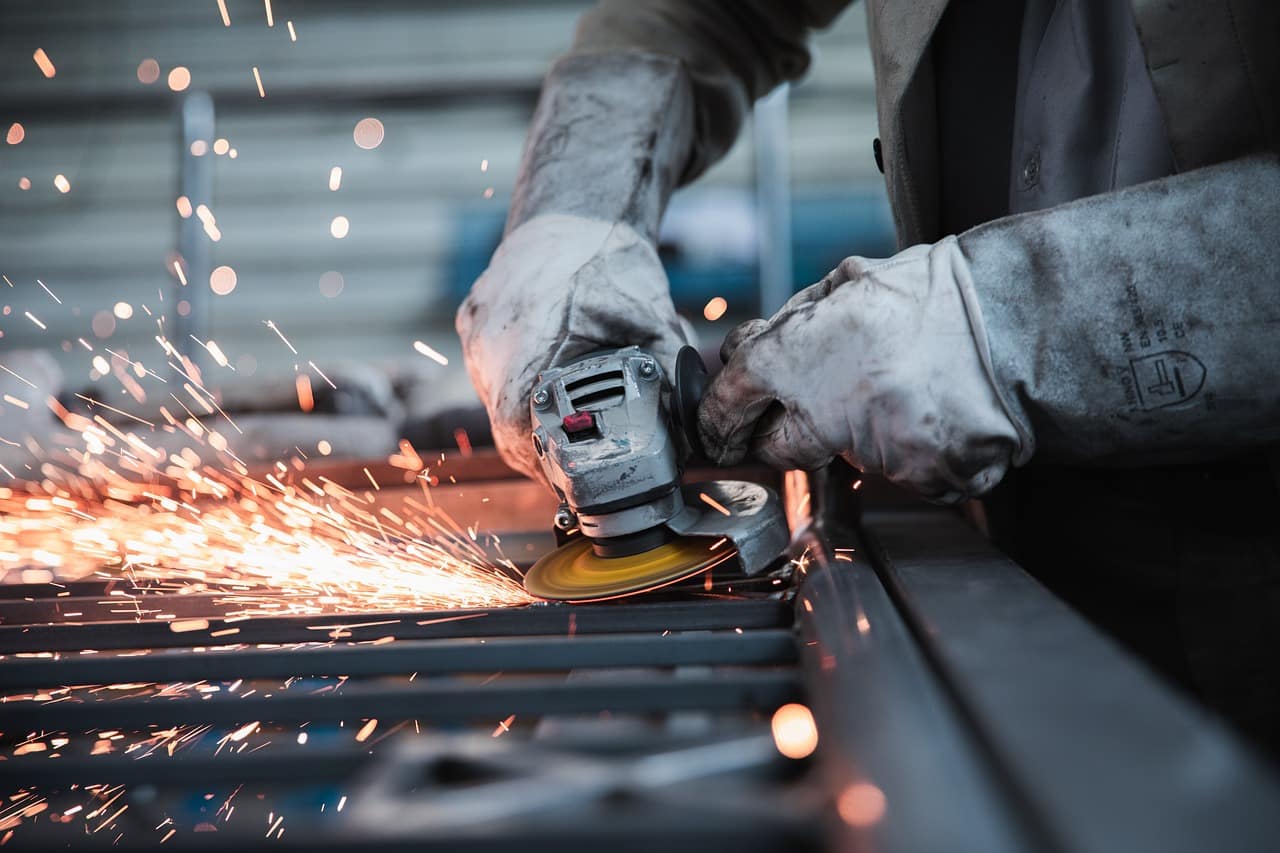Working in a factory can be a challenging endeavour, with various hazards lurking around every corner. From the noise of machinery to the risk of accidents, factory workers face a unique set of dangers. In this article, we will delve into the hazards of working in a factory, exploring the common risks that factory employees encounter on a daily basis. By understanding these risks, we can shed light on the importance of workplace safety and the measures that should be taken to protect workers. We will highlight the steps you need to take when starting an injury at work claim.
Understanding the Hazards in the Factory Workplace
When it comes to factory work, it’s crucial to be aware of the potential hazards that can jeopardise the well-being of employees. By recognising these dangers, employers can implement preventive measures to mitigate risks and create a safer working environment. Here are some common hazards in factory workplaces:
Machinery Accidents
Factory floors are often filled with various types of machinery, including heavy equipment, conveyor belts, and power tools. Mishaps can occur when employees are not trained properly or fail to follow safety protocols. Machinery accidents can result in severe injuries, such as crushed limbs, amputations, or even fatalities.
Slips, Trips, and Falls
Slippery surfaces, cluttered walkways, and uneven floors can pose serious risks to factory workers. Falls from heights or on the same level can lead to broken bones, sprains, and head injuries. Proper housekeeping practices, the use of safety signage, and the implementation of non-slip flooring can help prevent these accidents.
Hazardous Substances
Many factories involve the use of chemicals, solvents, and toxic substances. Exposure to these materials can lead to respiratory problems, skin irritations, burns, and long-term health issues. Adequate ventilation, personal protective equipment (PPE), and proper training in handling hazardous substances are essential for minimising the risks associated with them.
Common Factory Work Injuries
While every factory poses unique hazards, certain types of injuries are more prevalent in these environments. Understanding these injuries can help raise awareness and facilitate preventive measures. Here are some common factory work injuries:
Cuts, Lacerations, and Burns
Factory workers often handle sharp tools, machinery with moving parts, and hot materials. Accidental contact can result in cuts, lacerations, or burns. Wearing appropriate protective gear, such as gloves and safety goggles, can significantly reduce the likelihood of these injuries.
Musculoskeletal Disorders (MSDs)
Repetitive motions, lifting heavy objects, and poor ergonomics can lead to musculoskeletal disorders. Conditions like back pain, carpal tunnel syndrome, and tendinitis are common among factory workers. Employers should promote proper lifting techniques, provide ergonomic workstations, and encourage regular breaks to prevent MSDs.
Hearing Loss
Noise levels in factories can reach hazardous levels due to machinery, equipment, and production processes. Prolonged exposure to high noise levels can result in irreversible hearing loss. The use of ear protection, implementing noise control measures, and regular hearing assessments are crucial for safeguarding workers’ hearing.
Ensuring Workplace Safety: A Collaborative Effort
Maintaining a safe working environment in a factory requires a collective effort from employers, employees, and regulatory bodies. Here are some key measures that can be taken to ensure workplace safety:
Comprehensive Training Programs
Employers should provide thorough training to all factory workers, covering topics such as machinery operation, hazard recognition, emergency procedures, and the proper use of personal protective equipment. Ongoing training and refresher courses are essential to keep employees well-informed about safety practices.
Regular Safety Inspections
Conducting routine safety inspections allows employers to identify and address potential hazards promptly. This includes inspecting machinery, ensuring proper storage and handling of hazardous substances, maintaining clear walkways, and assessing the overall safety culture of the workplace.
Promoting a Safety Culture
Fostering a culture of safety starts with effective communication and employee engagement. Employers should encourage workers to report safety concerns, provide a platform for suggestions, and actively involve employees in safety committees. Recognising and rewarding safe behaviours further reinforces the importance of workplace safety.
Making an Injury at Work Claim
Despite the preventive measures and safety protocols implemented in factories, accidents can still occur. In the event that a factory worker sustains an injury while on the job, it’s important to understand the process of making an injury at work claim. Here are some key points to consider:
Report the Incident
As soon as an accident happens, it is crucial to report it to a supervisor or manager. Providing detailed information about the incident, including date, time, location, and witnesses, will help establish the circumstances surrounding the injury.
Seek Medical Attention
Promptly seek medical attention for any injuries sustained. Even if the injury seems minor, it’s important to have a healthcare professional evaluate and document the condition. Medical records will be crucial evidence when filing an injury claim.
Consult with National Claims
Consulting with National Claims, where we specialise in workplace injuries is integral to get a start on your claim. We can guide you through the claims process, ensure your rights are protected, and help maximise the compensation you are entitled to.
Gather Evidence
Collect and preserve any evidence related to the accident, such as photographs, witness statements, and medical records. This evidence will support your claim and establish the liability of the employer or any other responsible parties.
Seek Fair Compensation
The purpose of an injury at work claim is to seek fair compensation for the damages you have suffered. This may include medical expenses, lost wages, rehabilitation costs, and any other applicable damages. Work closely with our claims specialists to build a strong case and pursue the compensation you deserve.

Conclusion
Working in a factory environment can expose employees to a range of hazards and risks. Understanding these hazards and taking proactive measures to ensure workplace safety is crucial. By recognising the common risks, employers can implement preventive measures, provide proper training, and foster a safety culture that prioritises the well-being of factory workers.
In the unfortunate event of an injury at work, it’s important to follow the appropriate steps to make an injury claim. Prompt reporting, seeking medical attention, gathering evidence, and working with our experienced team will help protect your rights and maximise the compensation you are entitled to.
Ultimately, the goal is to create a safe and secure working environment for factory workers. By addressing the hazards, implementing preventive measures, and supporting injured workers through the claims process, we can strive to make factories safer places for everyone.
Contact us to start your claim and to find out more about how we deal with injury at work claims.
Click below to see why we are one of the most trusted claims management companies in the UK

We’re proud of our excellent customer reviews
We thrive on delivering exceptional service and ensuring our clients’ satisfaction. Don’t just take our word for it. Check out some of our independent reviews to see what our clients have to say.
Excellent

This firm is excellent, they sorted out my car pay out and injury claim very fast, they always communicate with you all the time.

My accident case was dealt with confidence and with great result of the outcome, especially James kept me informed all the time.

I was very impressed at the way my inquiry was treated. I was listened to attentively and everything I needed to know was explained to me.






